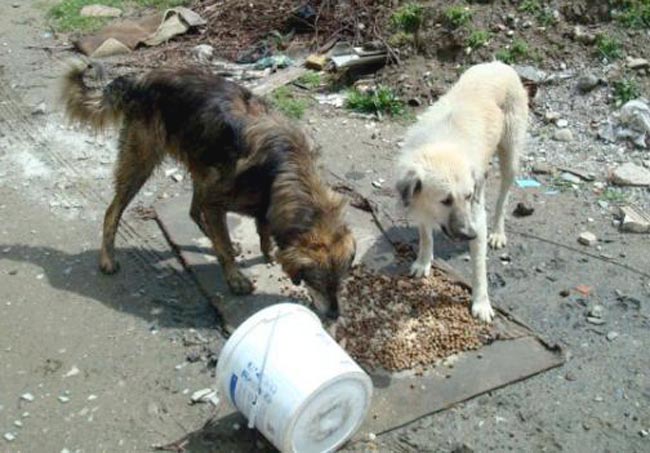
Animal rights groups recently applauded Turkey for its recent amendment to its Animal Welfare Act that makes it a crime punishable by jail to deliberately harm an animal.
The amendment, proposed by the Istanbul Bar Association’s Animal Rights Commission, also jacked up the rates of fines for animal abuse, which is how Turkey has penalized offenders in the past.
According to the Animal Liberation Front, the updated act requires anyone who wants a pet at home to undergo training and provide suitable accommodation for the animal. The legislation also bans the sale of all pets or animals except fish or birds.
ALF states: “Those who sell and own pets are obliged to participate in training programs organized by local administrations and obtain a certificate. A fine of 1,000 Turkish Liras will be imposed on those who sell pets to people who have not received animal care training.”
The law calls for fines for taking dangerous dogs in public without a strap and muzzle, and for torturing animals. There are jail terms for beastiality, or harming an animal by cutting, burning or use of chemicals.
Forcing animals to fight is also addressed and there’s a requirement to take animals to a vet in the case of traffic accidents. People convicted of animal abuse can be banned from their jobs if they work with children, in hospitals or other medical facilities.
It all sounds great from the animals’ point of view.
Legislation, however, is a human creation and is enforced by humans. This will not be an easy act to back up.
Turkey is not known for being warm and fuzzy on animal rights. The country is known for homeless dogs and cats wandering the streets.
A few years ago, the country brought in a capture, spay/neuter and return program to deal with homeless dogs. However, the lowest bidder for the contract was hired and it turned out, was not qualified to do the job. Dogs were being picked up in unventilated vehicles, they were badly spayed or neutered, in some cases they didn’t survive the surgical table, they were released back out on the streets disoriented and stumbling into traffic or they were dumped in an area where they couldn’t find food.
Let’s hope this time around, Turkish legislators have done the right thing. These amendments will be difficult to enforce — who will inspect each and every home to ensure it’s suitable? How will ownership be determined for animals that are abandoned?
The expectation seems to be that local governments will manage and monitor the certification/training of pet owners. The country’s Food, Agriculture and Livestock Ministry will oversee animals used in experimentation through certification after training has been organized by ethics councils.
Sacrificial animals have not been dealt with yet.
All eyes of animal groups will be watching Turkey to see how the new law will work out.
Regardless of how it plays out in Turkey, the amendment is something that should be examined in other countries, including Canada.
The principles within the legislation are good ones, even if they are cumbersome to follow through.
It would be another step toward ensuring animals are properly cared for, not abandoned and spayed or neutered. It would also reduce impulse buying in stores where someone sees a cute puppy or kitten and just has to have it without thinking about caring for it for 15 years or more.
Despite all the animal rescue agencies that we have, they aren’t enough. Abuse continues, daily, and puppy mills still operate across the country.
There are a lot of positives to be gleaned from Turkey’s attempt to clean up its animal-rights record; we should push Canadian legislators to step up in their own back yards.
